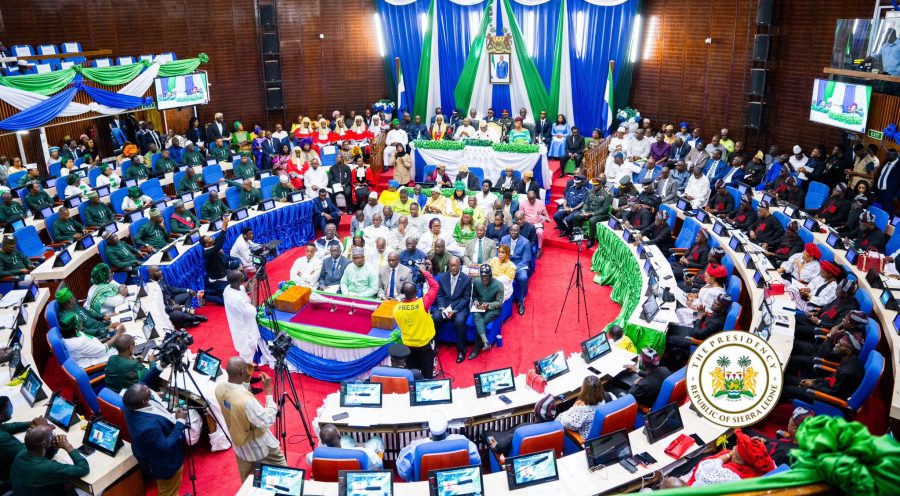Legal Link, a human rights and legal advocacy organization, has released a critical legal advisory opinion on the Counter-Terrorism Bill 2024 currently under review by Sierra Leone’s Parliament. While acknowledging some positive aspects, the organization identifies significant weaknesses and potential for abuse, urging substantial reforms.
The bill, intended to bolster Sierra Leone’s counter-terrorism framework, introduces stricter offenses and penalties, establishes new counter-terrorism bodies, and expands law enforcement powers.
Legal Link notes the bill’s inspiration from the African Model Anti-Terrorism Law. However, they express serious concerns about its potential impact on fundamental rights, particularly the right to privacy.
Legal Link commends the bill for establishing key institutions like the National Counter Terrorism Committee, the National Counter Terrorism Coordination Committee, and the Counter Terrorism Fusion Centre. They also praise the creation of radical offenses with tough penalties for terrorism-related activities, the prohibition of financial support for terrorism, the authorization of preventive measures by the head of the Counter Terrorism Fusion Centre, the freezing of terrorist assets, the requirement for warrants before searches of terrorist property, and the right to appeal property forfeiture.
Despite these positives, Legal Link outlines ten major concerns:
Overly Broad Definition of Terrorism: The definition is deemed too broad and could encompass even riotous conduct. Legal Link recommends a narrower definition aligned with international standards.
Politically Dominated Counter-Terrorism Committee: The committee’s composition, primarily consisting of presidential appointees, raises concerns about political interference. Legal Link suggests including non-political actors like journalists, civil society organizations, and legal professionals.
Unrestricted Information Gathering Powers: The bill grants excessive power to the committees to obtain information, potentially violating privacy and confidentiality. Legal Link recommends requiring judicial orders for accessing confidential information and creating exceptions to privacy and confidentiality rules.
Overly Broad List of Terrorist Acts: Including offenses like property damage and grievous bodily harm is criticized. Legal Link urges a review in line with international best practices.
Vague Definition of Life Imprisonment: The lack of clarity on the scope of life imprisonment and the categories of violence warranting it is flagged. Legal Link recommends aligning it with the Abolition of the Death Penalty Act (minimum 30 years) and providing further explanation.
Lack of Mens Rea Requirement for Certain Offenses: Omitting the “guilty mind” requirement for some serious offenses is a major concern. Legal Link recommends inserting “intentionally” or “recklessly” and reserving offenses without mens rea for misdemeanors.
Unfettered Power to Search Premises: The power to search premises without a court order is seen as a violation of privacy. Legal Link insists on mandatory court orders before searches.
Unchecked Deportation Powers: Granting the Chief Immigration Officer unchecked powers to deport individuals suspected of terrorism is criticized. Legal Link recommends safeguards and judicial oversight.
Excessive Powers of the Head of the Counter-Terrorism Fusion Centre: The power to search premises without a warrant and install surveillance devices is deemed excessive. Legal Link recommends requiring warrants.
Ex Parte Applications for Terrorist Designation: Allowing ex parte applications to designate individuals or entities as terrorists violates natural justice. Legal Link recommends inter partes applications allowing the accused to be heard.
Crucially, Legal Link highlights the bill’s failure to incorporate exceptions from the African Model Anti-Terrorism Law, specifically regarding acts of advocacy, protest, dissent, or industrial action. They fear this omission could be used to target civil society organizations, opposition figures, and dissenting voices.
Legal Link concludes its advisory opinion by emphasizing its commitment to a progressive counter-terrorism law and urging Parliament to seriously consider its recommendations. They acknowledge the opinion is not exhaustive but hope it stimulates debate and contributes to a more balanced and rights-respecting legislation.











